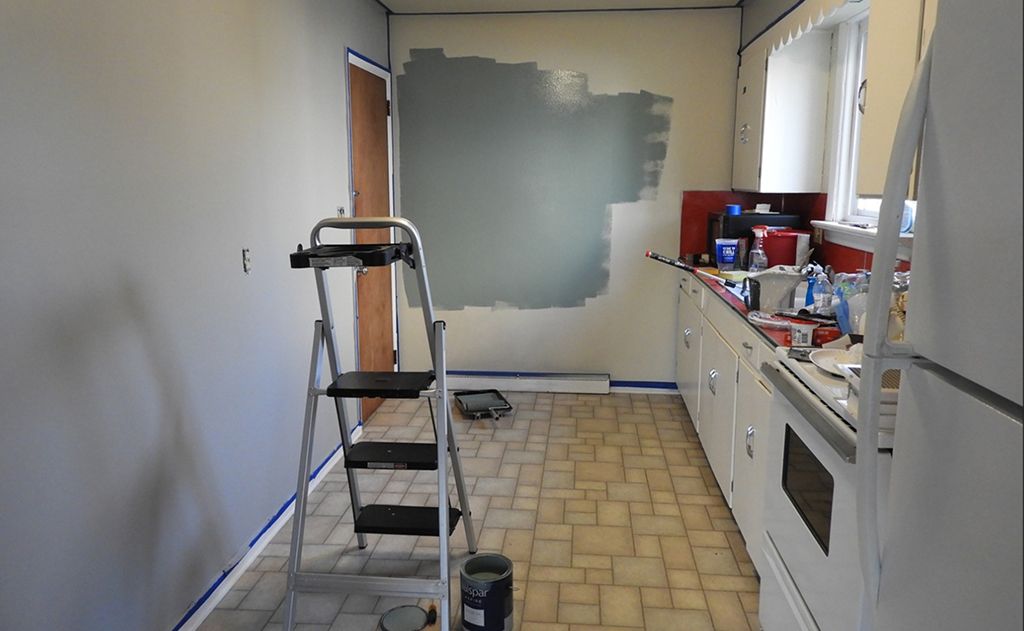Homeownership isn’t for everyone! I know that can sound downright strange coming from a real estate firm. Yes, we are in the business of selling homes. We’re in the business of connecting buyers and sellers. We’re a company that’s predicated upon building and nurturing relationships with our clients, our agents, lenders, appraisers, inspectors and other professionals. Yet, while owning a home is typically seen as a sound investment, there are situations when it may not be financially advantageous to buy one.
For example, you might not want to own a home if there’s uncertainty about your future or your job security, as committing to a mortgage could prove burdensome, if income becomes unstable. Another factor to consider is if you’re carrying high levels of debt. If you’re in a financial deficit, it may be more feasible to rent and focus on paying off obligations before taking on the additional financial responsibility of a home. Paying down/off higher-interest debts can raise your credit score as well, which will help you achieve a better mortgage rate for your next home purchase. Additionally, if you plan to relocate frequently due to work or personal reasons, the costs associated with buying, selling and moving can make renting a more favorable option as well. Ultimately, the decision to buy a home should be carefully weighed against all personal satisfaction with your current residence, financial position and job situation.
On the other hand, if you are a property owner, welcome to the wonderful world of ownership (and maybe lower taxable income too). With that being said, did you know, there are ways that you can increase or likewise decrease the value of your home? And this can happen even over short timeframes.
Increase Your Home’s Value
Increasing the value of your home in less than one year can be achieved through different ways. One effective method is to focus on curb appeal by enhancing the aesthetics of the exterior. This can be done by maintaining a well-manicured lawn, planting flowers and shrubs, and adding a fresh coat of paint to the front door (choose that color wisely!). Upgrades to your home’s exterior can be relatively affordable. This is the one area where sellers can give themselves a boost when debuting their home for sale. Another approach is to update key areas in the house such as the kitchen or bathroom, as these rooms often have a significant impact on the overall value of the home. Maybe it’s time that your kitchen finally got a face-lift. The condition of the kitchen and the bathrooms are often the hinge on what buyers tend to gravitate towards or away from when engaged in their search. The kitchen, like the main living area, is a frequently visited room, and as such, potential buyers are looking for modern beauty and convenience here, when possible. Additionally, improving energy efficiency by installing energy-saving appliances/lighting, improving insulation and opting for eco-friendly materials can boost the value of your home too. Smart home technology has been one of the safest investments in recent years. The ability to adjust the temperature, security or lighting in your home from a distance is a real game-changer. There’s a certain peace-of-mind in this sector of home improvement and unfortunately for some sellers, this is a must-have for a handful of buyers.
If you have other questions about valuation or selling, in general, click here.
Negatively Impacting Your Home’s Value
On the flip side, there are several actions that can quickly diminish the value of your home. For one, neglecting maintenance and repairs is one of the easiest ways to decrease value. This includes ignoring necessary fixes like leaking roofs, faulty plumbing or electrical issues. If homeowners avoid addressing a major issue, it could balloon into something intolerable. Water is a good example of this. A water dilemma, left to its own devices, could become a big financial headache for owners of a property. Another pitfall you might want to evade is engaging in excessive customization that may not appeal to the general public, such as unconventional color choices or highly specific themed rooms. Lime green or Pepto-Bismol pink, anyone? Or think solarium or home theater. While you might love those colors or while these might be intriguing rooms, a real hub for excitement in a home, they’re not for everyone. In fact, there’s a segment of homebuyers who would never have a use for either color or room. Lastly, failing to maintain an overall clean and tidy household, including proper hygiene and cleanliness, can also reduce the overall value of your home or at least its perceived value. Many of the buyers we work with are thankful for their ability to rely on their five senses during their home search. Sight and smell are as important as any and they can single-handedly make buyers do an about-face upon entering a residence.
There are also some pretty strange elements which can impact your home’s worth. Some of them might catch you off guard.
As you examine your property, probing the aspects you can – remember, you’re probably not a licensed home inspector. Take note of what requires your attention and make a plan based upon that, calling upon professionals when needed. Pinpoint areas where updating will raise the value of your home. Maintenance, repairs and upgrades will positively affect the valuation of your property as well as your confidence as a homeowner.


